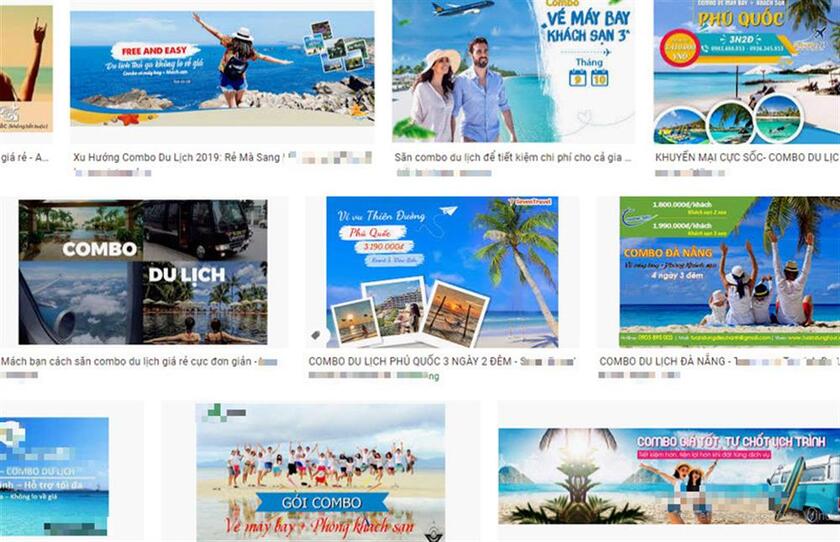Identifying features
Scammers post advertisements on the internet and social media offering cheap tour packages and hotel rooms with many included benefits, requesting victims to transfer a deposit (30-50% of the value) to reserve the tour or hotel room, thereby stealing the deposit money. They also post advertisements for visa services for foreign tourists, promising a high success rate and a 100% refund if the visa is not obtained. After the victim transfers the payment or a portion of the cost, the scammers have the victim fill out the application form and complete the documents themselves… Then they claim the victim provided incomplete information and do not return the money.
They create fake websites/fan pages of reputable travel companies, forge photos of receipts and invoices, and ask victims to transfer money to pay for the tour. After the customers transfer the money to pay for the travel services, the perpetrators block all communication and erase all traces.

It is necessary to carefully check and research information about promotional programs before choosing a product.
Impersonating/hijacking social media accounts, contacting relatives on their friend list claiming to be stranded while traveling abroad and needing money immediately.
These individuals impersonate airline ticket agents, creating websites and social media pages with addresses and designs similar to those of official airlines or agents, then advertising very attractive prices compared to the general market to attract customers.
If a customer contacts them, the scammers will book airline tickets, send a booking code as confirmation, and request payment. After receiving payment, they do not issue the airline tickets and cut off communication. Because the booking code has not been issued as an airline ticket, it will automatically cancel after a period of time, and the customer will only find out about this when they arrive at the airport.
Preventive measures
To avoid being scammed by the aforementioned tactics, people need to carefully research information when choosing travel packages. They should choose tour booking, hotel booking, and flight ticket booking services from reputable companies or through travel apps. For added peace of mind, people can request to see the business license, documents, and professional certifications of the travel company.
In addition, be wary of offers to buy tour packages at excessively low prices (30-50% cheaper than the market average); be especially cautious when travel agencies request a deposit to reserve a spot, and if possible, make the payment in person.
At the same time, pay attention to the signs of fake websites through their website names and domain names. Typically, the names of fake websites will be similar to real websites but may have some characters added or missing. Fake domain names often use unusual extensions such as .cc, .xyz, .tk…
In particular, for social media pages (Fanpages) that sell and promote travel packages, especially cheap travel packages and cheap airline tickets, people should choose social media pages with a blue verification badge (indicating registered accounts) or choose reputable social media pages where they know the seller's information well. Verify booking and flight ticket information to promptly detect any signs of fraud and report it to the nearest police station for guidance and resolution.

 VI
VI EN
EN

































